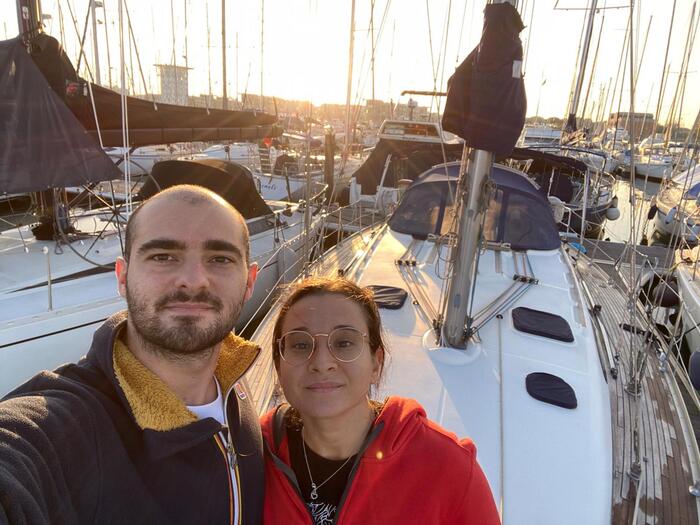The future.
That sector of spacetime that fortune tellers, scammers and consultants have lived for millennia.
Scientists also have their crystal ball, with the crucial difference that their predictions are based on reliable data and theories worked out with discipline and penalties for past experience, in permanent revision and therefore increasingly adjusted to the world.
When the covid passes, will there be new pandemics?
What will they be like, where will they come from, what virus will cause them?
How can we be prepared to prevent the unpredictable?
Is it worth doing considering the cost?
Let's take a look at the crystal ball of scientists.
There is little doubt about the efficiency of health insurance.
Prevention is the medicine of the future.
Let's take an example that is always exhibited by cardiologist Valentín Fuster, from Mount Sinai Hospital in New York.
Average population expectancy continues to rise in Western countries at a rate of a couple of years per decade.
But the reason is the development of increasingly complicated and expensive systems to treat heart attacks, treatments that do not usually return the patient to the previous quality of life, and that are unsustainable for public health.
Many heart attacks are preventable, however, by eating less saturated fat, exercising and avoiding tobacco and chronic stress, which costs zero euros or less.
The great goal of cardiology right now is not to invent new treatments, but to promote healthy habits.
Prevention is the medicine of the future.
More information
Inhabit a world we have not imagined
The data of a pandemic in three waves
The same general idea can be applied to pandemics of the future.
The costs of covid-19 are not yet accounted for, since the epidemic is still ongoing, but the falls already registered in the GDP of the countries, the lost jobs and the closed companies predict Guinness record figures, and this despite the dizzying reaction of scientists, companies and regulators.
If we had been in a position to prevent the pandemic, or to nip it in the bud in its first steps, the world would not only have saved two and a half million deaths, but also a dough that could feed a thousand hospitals and scientific institutions with resources.
But can the unpredictable be prevented?
As paradoxical as it may be, it can.
"An epidemic is like a fire in the forest," says virologist Margarita del Val.
"If we stop it at the root, it does not spread, and the same is true for pandemics."
A direct lesson that this fateful year has offered us is that a global epidemiological surveillance system for coronavirus must be established, inspired by the one that already exists for influenza, called GISRS (Global Influenza Surveillance and Response System) and promoted by WHO since the 1950s.
The flu caused three pandemics in the 20th century, starting with the one in 1918 that killed 50 million people, more than the Great War that ended just that year.
With these precedents, it is natural that virologists and epidemiologists have been on their nerves for a century with the flu and its mutations.
But we are now experiencing the most damaging pandemic since then, and this time it was not the flu, but a coronavirus, so it seems sensible to extend GISRS-like surveillance systems to this family of infectious agents.
And others, because scientists and United Nations agencies have their eye on several emerging viruses, that is, that have jumped from animals to people in more or less recent times and are well placed to unleash the next cisco .
The nipah virus, for example, which has caused several outbreaks in Asia and is very lethal.
The zika virus and its colleagues who have conquered Cuba within the mosquitoes that have arrived there inside the containers that were inside the cargo ships from Asia.
MERS, a coronavirus spread by camels in the Middle East and transmitted to humans who drink their milk or eat their meat;
There is already a vaccine against MERS, by the way, developed by Luis Enjuanes' laboratory in Madrid;
variants of the influenza virus that come from farm animals, such as 2009 H1N1, nicknamed influenza A, which came to us from pigs;
yellow fever, which kills 30,000 people every year despite the existence of a vaccine against the virus, and which jumps from monkeys to humans and vice versa in the foothills of the Amazon rainforest.
There is no shortage of candidates on the list.
And the worst may be the ones that aren't on the list yet.
"The only thing we can be sure of," says WHO epidemiologist Pedro Alonso, "is that interaction with viruses, bacteria and protists is part of our existence, and human mobility facilitates it."
The United Nations agency is aware that there are epidemics that, even without reaching pandemics, kill millions of people each year in poor countries and jeopardize their capacity for socio-economic development.
There are tuberculosis (one billion deaths since Christ was born), AIDS, malaria, dengue, chikungunya and Chagas disease.
The worst thing that can happen to a poor country is that its disease does not exist in the rich world.
"For these countries," laments Alonso, "epidemics are our daily bread."
Global surveillance systems are essential if we want to tackle the fire in the bud next time.
So is science centers around the world sharing their data on any new virus in the same microsecond that they have sequenced one.
Data management, in which Spain has been conspicuous for its clumsiness, must be coordinated and equipped with resources and trained people, and the response system has a long way to go to even deserve that name.
Cutting back on science and medicine is the pure recipe for failure.
Otherwise, the next pandemic is easy to avoid.




/cloudfront-eu-central-1.images.arcpublishing.com/prisa/PCE7NMB26ZDVRIQX2R26JSNH6A.jpg)



